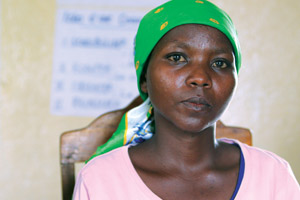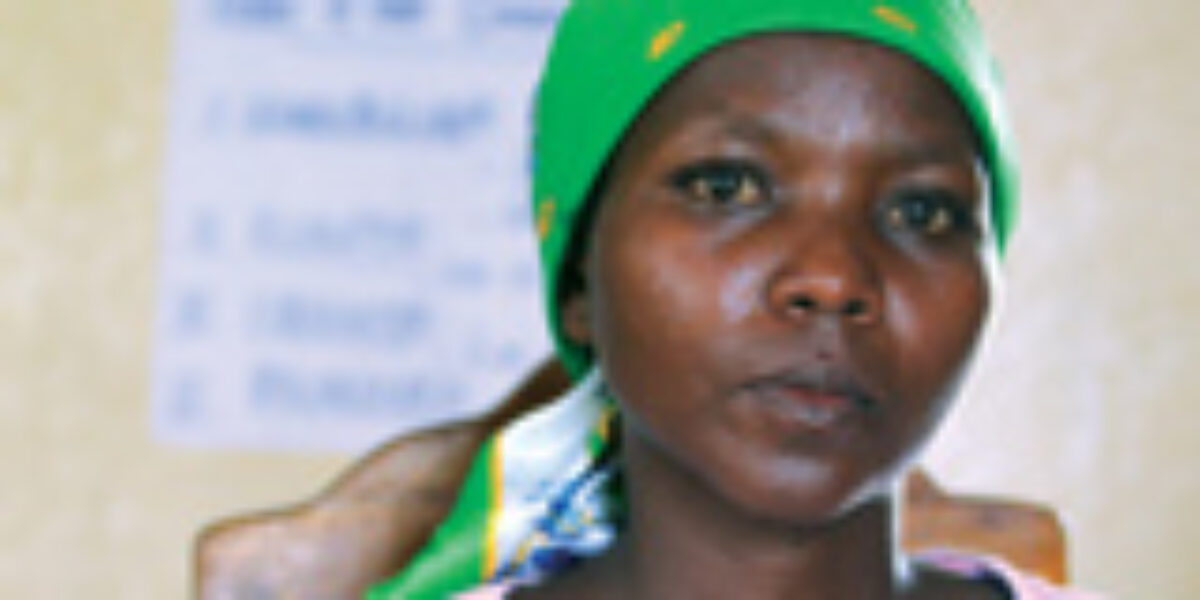
Q: What is the purpose of the Trauma Healing Advisory Council, and what do you anticipate will be accomplished through it?
Our purpose is to guide ABS as it refines its programs, materials and training processes related to the care of individuals traumatized by war, rape, genocide and natural disasters in the Great Lakes region of central Africa. In this area, there are many women whose lives have been destroyed by sexual violence as a part of the warring that has gone on between countries and rebel groups. ABS has launched She's My Sister to promote healing. What we hope is that our final product becomes a template for other trauma recovery interventions around the world — a template that encourages culturally sensitive, sustainable mercy ministry.
Q: How has your work in Rwanda helped prepare you for this?
Our visit to Rwanda last year was preceded by more than a year of reading about the history leading up to the 1994 genocide and the subsequent aftershocks in that country. We spent our entire trip listening to the stories of those who acted as perpetrators and those who were victims. We listened to church leaders and to government officials. We knew we needed to learn from Rwandans first before offering interventions. We needed to understand how Rwandan culture and history shapes the people. We wanted to see examples of resiliency as well as cultural expressions of trauma.
Even seasoned pastors are healing and growing through trauma healing
seminars in Africa. | Read Now »
Did you know that many Africans may feel happy in the moment but not particularly hopeful about the future? We Americans do the reverse. We are optimistic about the future but rather unhappy in the present. Our trip enabled us to develop ideas for how to take what we know about trauma and apply it to the specific context of Rwanda. This same strategy will help us as we consider the varying traumas in the wider region. While we have lay and professional materials we could use with rape victims in the United States, it would be foolish for us to assume that the same materials could be used with a woman raped in Goma, DRC.
Q: How can those of us in the broader Christian community respond to the types of injustice taking place in the Great Lakes region of Africa?
Getting educated is the first step. Too often we turn off the news or turn away from seeing the plight of others because we feel helpless to do anything. As we educate ourselves, we need to pray for opportunities to talk with others about how we may answer the biblical call to protect widows, orphans, aliens and other vulnerable people. This is the heart of the gospel (James 1.27).
And when we talk and pray as a church body, things begin to happen. I suspect this is what happened in Acts 13 when the first missionary movement began. Beyond that, give gifts to those who are working in the region.
Drs. Diane Langberg and Phil Monroe got a full-immersion course in trauma counseling while ministering to Rwandans struggling with post-traumatic stress disorder.
That experience, combined with their extensive clinical expertise, equips them to serve as co-chairs of American Bible Society’s Trauma Healing Advisory Council for She's My Sister™, a ministry that is initially focusing on helping women and children in the Democratic Republic of the Congo (DRC).
Learn more at CongoSister.org






